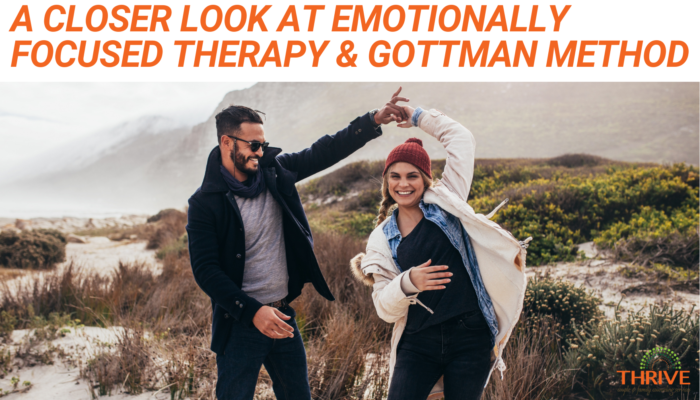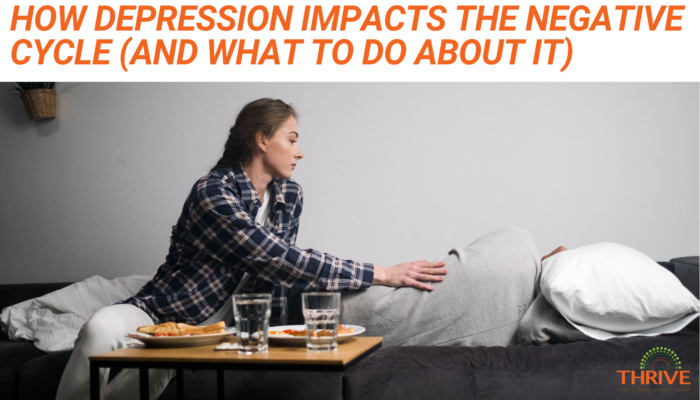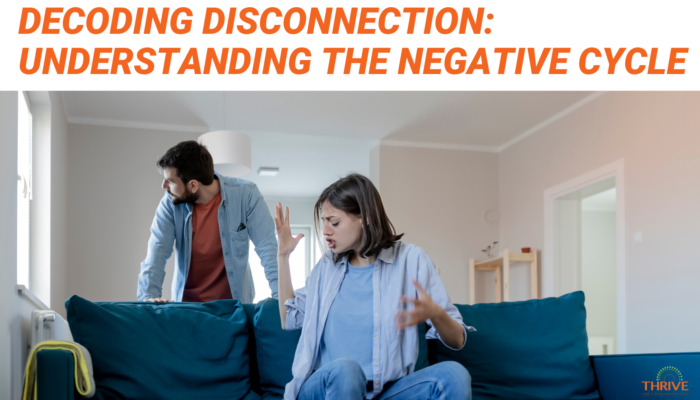Therapy Integration Series: A Closer Look at Emotionally Focused Therapy & the Gottman Method
“…because of pain, I can feel the beauty, tenderness, and freedom of healing.”
– C. JoyBell C.
Have you wondered what the “best” type of couples therapy is? After all, you are spending your valuable time, money, effort, and resources. You need to be able to trust the process and get the most out of your time in therapy.
In this series, we will look at two research-based powerhouses of couples counseling: Emotionally Focused Therapy (EFT) and Gottman Couples Therapy (GCT). We will examine the similarities and differences between the two and suggest ways to integrate both to create more loving and secure relationships equipped to handle life’s challenges.
What Do Gottman Couple’s Therapy & Emotionally Focused Therapy Have in Common?
Dr. John Gottman (GCT) and Dr. Sue Johnson (EFT) agree that the cornerstone of each therapeutic approach is to improve emotional regulation and connection between partners. In other words, you can become aware of the emotions coming up for you and your partner and soothe and comfort one another when hurting.
Dr. Johnson states, “To achieve a lasting, loving bond, we have to be able to tune in to our deepest needs and longings and translate them into clear signals that help our lovers respond to us. We have to be able to accept love and to reciprocate.”
Dr. Gottman confirms, “…within every negative feeling, there is a longing, a wish, and, because of that, there is a recipe for success.”
Here are other similarities between EFT and the Gottman Method:
- Short-Term Counseling Approaches
-
- EFT and GCT offer short-term and structured therapy approaches, anywhere from 8-30 sessions (or more as needed).
- Practice In Session
- Emotionally Focused Therapy and Gottman Method focus on organizing interactions in session to help partners open to one another in new ways. GCT & EFT help couples engage in experiential emotional “Here and Now” present process interventions, i.e., turning to one another during sessions. So, both styles are effective in helping couples practice to recognize and communicate their emotions in meaningful and productive ways.
- Focus on Accessibility
- Emotionally Focused Therapy and Gottman Method help partners become more emotionally vulnerable and receptive to one another, or in EFT language, “A.R.E. you there for me?” A.R.E. = Accessible, Responsive, and Engaged.
- Client-Centered
- Gottman and EFT approach couples in a client-centered way and value self-actualization and unconditional positive regard. In other words, your therapist seeks to understand you and the very good reasons why you do what you do personally and relationally.
- Patterns and Habits
- Overall, Gottman Couples Therapy & Emotionally Focused Therapy help to decrease avoidance and enhance positive interactional patterns. More to come about the patterns both approaches focus on…
What Are the Differences Between EFT & GCT?
There are several differences in understanding both couples’ counseling approaches, including their theoretical roots, the view of romantic relationships, and the treatment methods both systems use to get couples back on track.
The Big Ideas: Emotionally Focused Therapy helps partners become aware of their own emotions, soothe and co-regulate one another, and strengthen their attachment bond no matter what they might be discussing or facing in life. The Gottman method teaches practical tools to create more positive experiences between partners.
How Emotionally Focused Therapy Views Relationship Distress:
EFT believes that partners feel dysregulated when a couple’s bond is disrupted. In other words, partners get emotionally, mentally, and physically upset. People get irritated, angry, sad, fearful, and frustrated when they can’t seem to stay connected.
Couples then become caught in self-perpetuating cycles of negative interaction, like an infinity loop where one person’s behavior triggers another person’s behavior. This loop or cycle reinforces avoidant and anxious attachment styles.
The more one partner goes towards, the more the other backs away. The more one partner disengages, the more the other partner protests to get their partner’s attention. And on and on until couples feel misunderstood, disconnected, and fed up. It is a vicious cycle, pattern, and unending loop! That is, until EFT comes into the equation!
Emotionally Focused Therapy helps couples become aware of these negative cycles and speak from present and “felt” emotions.
People can then develop compassion for themselves and their partners and become more responsive to the presenting attachment needs. The final result is loving each other from a secure relationship bond.
Unlike Gottman’s counseling style, EFT therapists do not spend time teaching social skills but focus on experiencing and understanding emotions in session. The therapist models acceptance, respect, empathy, and genuineness and holds a nonjudgmental perspective of participants’ triggers, emotional responses, and protective coping behaviors. Couples focus on forming secure attachments, which can organically create effective communication and problem-solving between partners.
Here are steps Johnson developed in Emotionally Focused Therapy and what your EFT therapist is following to help you come back together:
- Step 1: Assess conflict issues and how the couple feels separate-connected and dependent-independent.
- Step 2: Identify the negative interactional cycle.
- Step 3: Feel and share the emotions underlying and fueling each partner’s position in the cycle.
- Step 4: Reframe understanding of the conflict in terms of the cycle. Understand underlying emotions and attachment needs which are normal and longing to be met.
- Step 5: Identify disowned needs and aspects of self that have been hidden for each partner and share them.
- Step 6: Promote acceptance of these tender and hidden parts. Promote vulnerable aspects of self and new ways of relating.
- Step 7: Express needs and wants and create true emotional engagement.
- Step 8: New solutions emerge to old problematic relationship issues.
- Step 9: Solidify newfound cycles of emotional closeness and attachment.
For a more in-depth description of how EFT works, see A Beginner’s Guide to Emotionally Focused Therapy.
How Gottman Couples Therapy Views Relationship Distress:
Gottman found that when couples are distressed, “Four Horsemen of the Apocalypse” behaviors tends to increase. Four Horsemen behavior includes criticism, defensiveness, contempt, and stonewalling.
Criticism attempts to attack a person’s character. Using defensiveness, one partner makes excuses or plays innocent so the other partner will back off. Contempt assumes a position of moral superiority and tends to display mocking behavior towards one’s partner. Stonewalling occurs when the listener withdraws from interacting with their partner and just stops responding.
According to Gottman’s Love Lab research, criticism, defensiveness, contempt, and stonewalling can predict the end of a relationship if these behaviors are not changed. Gottman Institute has a quick video to give readers a better view of what to look out for: Four Horsemen of the Apocalypse.
Gottman created his clinical approach based on the “Sound Relationship House Theory,” which helps couples deepen their friendship, strengthen conflict management skills, and create shared meaning and purpose. Through GCT, couples learn to increase empathetic listening and validation, self-soothe, accept influence from one another, compromise, and begin to repair emotional wounds.
Here are a few steps Gottman Method uses with couples during sessions:
- Educate about active expressions of caring in intimate relationships. Teach basic emotional communication skills, and help each partner support the other through listening and validation.
- Increase appreciation and admiration and collaborate to create norms and boundaries to improve safety.
- Identify satisfying qualities the couple would like in their relationship and develop a better understanding of personal aspirations (“Love Maps”) to access each other’s inner psychological worlds.
- Express emotions and constructively respond to each other’s bids for connection. Develop soothing and reassuring responses.
- Decipher unresolvable problems from resolvable situational conflict. Teach the couple about softened start-ups, complaining constructively, making repairs, accepting influence, finding compromise, and soothing tension. Repair the relationship in the aftermath of an argument.
- Move toward honoring one another’s hopes and dreams in resolving conflict.
How You Can Integrate Emotionally Focused Therapy and Gottman Couples Therapy
There is great worth in both the Gottman and Emotionally Focused Therapy approaches, especially when these resources are used in tandem.
An EFT therapist can help you and your partner emotionally attune to one another and build a more secure attachment. The first step is to trace your patterns of interaction so you can have a clear picture of where to start to change your typical conflict cycle. You can learn to look more deeply at outwardly critical or defensive moves and excavate the vulnerable emotions underneath.
Your EFT therapist will help the two of you normalize and understand protective behavior and create enough safety between you to risk and try communicating your emotions more clearly. EFT creates a longing for change by tapping into deep attachment needs like belonging, acceptance, worthiness, and unconditional love.
Using a dancing metaphor, EFT creates new “emotional music” for the dance, while Gottman methods reinforce the change through tangible “dance steps”.
Gottman tools like the Sound Relationship House and the Four Horsemen of the Apocalypse can help us examine our part in the cycle and practice self-awareness. Gottman’s resources can benefit partners with difficulty accessing or naming emotions. GCT also provides “road maps” for couples, like 6 Hours to a Better Relationship, Open Ended Questions, and Stress-Reducing Conversation, that help couples to create hope through guided activities.
The Big Takeaway
If you are looking for the right couple’s therapy fit, we encourage you to try combining Emotionally Focused Therapy sessions with Gottman Couples Therapy resources.
To integrate the two, you could meet with one of Thrive’s specialized Emotionally Focused Therapy counselors and utilize Gottman’s hands-on tools for tangible interventions to connect with your partner in between sessions. Stay tuned for more tips in our Therapy Integration series to learn how to blend Gottman tools with Emotionally Focused Therapy to get the most out of your couple’s counseling experience!
Want to learn more about Emotionally Focused Therapy and Gottman Couples Therapy?
If you’d like to learn more about available Emotionally Focused Therapy and Gottman tools, we recommend checking out these great resources (Descriptions below borrowed from Amazon and book website writeups)!
- Eight Dates: Essential Conversations for a Lifetime of Love by John Gottman, Julie Schwartz Gottman, Doug Abrams, Rachel Carlton Abrams
- This program of eight lively, conversation-based dates will result in a lifetime of understanding and commitment, whether you’re newly in love or have been together for decades.
- Eight Dates is like having two of the world’s leading relationship scientists at your table coaching you on how to address the topics—from trust to money to dreams—that make-or-break relationships. Welcome to date night.
- An Emotionally Focused Workbook for Couples: The Two of Us by Veronica Kallos-Lilly and Jennifer Fitzgerald
- Intended for use with couples who want to enhance their emotional connection or overcome their relationship distress. It closely follows the course of EFT treatment to easily integrate guided reading, reflection, and discussion into the therapeutic process. Explore concepts such as attachment bonds, the three cycles of relationship distress, how to make sense of emotions, relationship hurts, and more.
- The authors weave fresh, illustrative examples throughout, with updated content considering the impact of gender, culture, and sexual orientation on relationship dynamics. An expanded section on sexuality dispels constraining popular myths and frees partners up to express themselves more openly.
- Gottman Card Deck App
- Inspired by the popular card decks from The Art and Science of Love weekend workshops for couples (now available virtually), this fun app offers helpful questions, statements, and ideas for improving your relationship. Download to explore 14 card decks with more than 1,000 flashcards, tap the star to favorite a card, easily tab back and forth between All and Favorites, and access more free resources from The Gottman Institute.
- Hold Me Tight: Seven Conversations for a Lifetime of Love by Sue Johnson
- Strengthen and deepen your relationships with revelatory practical exercises, seven profound conversations, and sage advice from “the best couple’s therapist in the world” (John Gottman, PhD, bestselling author) In Hold Me Tight, Dr. Johnson shares her groundbreaking and remarkably successful program for creating stronger, more secure relationships.
- The message of Hold Me Tight is simple: Forget about learning how to argue better, analyze your early childhood, make grand romantic gestures, or experiment with new sexual positions. Instead, get to the emotional underpinnings of your relationship by recognizing that you are emotionally attached to and dependent on your partner in much the same way a child is on a parent for nurturing, soothing, and protection.
- Dr. Johnson teaches that to enhance or save a relationship is to be open, attuned, and responsive to each other and to reestablish an emotional connection. With this in mind, she focuses on key moments in a relationship and uses them as touch points for seven healing conversations. These conversations give you insight into the defining moments in your relationship and guide you in reshaping these moments to create a secure and lasting bond. Through stories from Dr. Johnson’s practice, illuminating advice, and practical exercises, you will learn how to nurture, protect, and grow your relationship, ensuring a lifetime of love.
- Love Map Questionnaire – Integral Psychology
- Gottman defines a “love map” as “that part of your brain where you store all the relevant information about your partner’s life.” Having a detailed “love map” involves a genuine interest in your partner. It means making plenty of mental space to store information about their personal opinions, preferences, quirks, dreams, and fears.
- You should be aware of major events in each other’s life history and attentively update your knowledge inventory as your spouse or lover grows and changes. Gottman says spouses who are in the habit of keeping up to date with each other’s lives (including intimate details about what the other feels and thinks), are better equipped to cope with major life changes, stressful events, and conflict.
- Love Sense: The Revolutionary New Science of Romantic Relationship by Sue Johnson
- The bestselling author of Hold Me Tight presents a revolutionary new understanding of why and how we love based on cutting-edge research. Every day, we hear of relationships failing and questions of whether humans are meant to be monogamous. Love Sense presents new scientific evidence that humans are meant to mate for life.
- Dr. Johnson explains that romantic love is an attachment bond, just like that between mother and child, and shows us how to develop our “love sense” — our ability to create long-lasting relationships. Love is not the least bit illogical or random, but actually, an ordered and wise recipe for survival.
- Love Sense covers the three stages of a relationship and how to best weather them; the intelligence of emotions and the logic of love, the physical and psychological benefits of secure love; and much more. Based on groundbreaking research, Love Sense will change how we think about love.
- The Seven Principles for Making Marriage Work by John Gottman and Nan Silver
- An overview of the concepts, behaviors, and skills that guide couples on the path toward a harmonious and long-lasting relationship. Just as Masters and Johnson were pioneers in the study of human sexuality, Dr. John Gottman revolutionized the study of marriage. Straightforward in its approach yet profound in its effect, the principles outlined in this book teach partners new and startling strategies for making their marriage work.
- Dr. Gottman has scientifically analyzed the habits of married couples and established a method of correcting the behavior that puts thousands of marriages on the rocks. He helps couples focus on each other, on paying attention to the small day-to-day moments that, strung together, make up the heart and soul of any relationship.
- Packed with questionnaires and exercises whose effectiveness has been proven in Dr. Gottman’s workshops, this is the definitive guide for anyone who wants their relationship to attain its highest potential.
References
-
David, P. (2015). Wedding the Gottman and Johnson Approaches into an Integrated Model of Couple Therapy. The Family Journal, 23(4), 336–345.
-
Gottman, J. M., & Gottman, J. S. (2008). Gottman method couple therapy. In A. S. Gurman (Ed.), Clinical handbook of couple therapy (pp. 138–164). The Guilford Press.
-
Gottman, J. P., Silver, N., Gottman, J. (2015). The Seven Principles for Making Marriage Work: A Practical Guide from the Country’s Foremost Relationship Expert. United States: Harmony/Rodale.
-
Gottman, J. M., & Silver, N. (2012). What makes love last? New York, NY: Simon & Schuster.
-
Gurman, A. S. (2008) (Ed.). Clinical handbook of couple therapy. New York, NY: The Guilford Press.
-
Jalali N, Heidari H, Davoudi H, Aleyasin S A. (2019). The Comparison of the Effectiveness of Emotion Focused Therapy and Gottman’s Relationship Enrichment on Woman’s Communication Patterns. 17 (2) :265-279.
-
Johnson, S. M. (2004). The practice of emotionally focused couple therapy (2nd ed.). New York, NY: Brunner-Routledge.
-
Johnson, S. M. (2008a). Emotionally focused couple therapy. In A. S. Gurman (Ed.) Clinical handbook of couple therapy (4th ed.) (pp. 107-137). New York, NY: Guilford Press.
-
Johnson, S. M., Bradley, B., Furrow, J., Lee, A., Palmer, G., Tilley, D., Woolley, S. (2005). Becoming an emotionally focused couple therapist: The workbook. New York, NY: Routledge.
-
Lisitsa, Ellie (2013, May 20). The Four Horsemen: Criticism, Contempt, Defensiveness, and Stonewalling.
-
Modern Therapy Blog (2022). Emotionally-Focused Therapy (EFT) and The Gottman Method.
-
Saemi, H., Besharat, M. A., & Asgharnezhad farid, A. (2020). Comparison of the Effectiveness of Gottman Couple Therapy and Emotionally Focused Couples Therapy on Emotion Regulation in Couples. Research in Clinical Psychology and Counseling, 10(1), 87-104. doi: 10.22067/tpccp.2020.39366
-
The Gottman Institute (2014, Dec 15). Four Horsemen of the Apocalypse [Video]. YouTube.
-
Wheelhouse, Margie (2019, September 10). Are Gottman Method and Emotionally Focused Therapy (EFT) Compatible?
-
Young, M. A. (2005). Creating Confluence: An interview with Susan Johnson and John Gottman. The Family Journal: Counseling and Therapy for Couples and Families, 13(2), 219-222.




